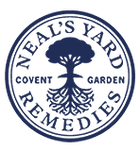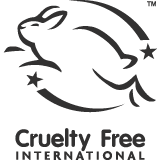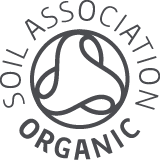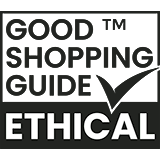Posted by
on September 20, 2024
From lavender to rosehip, orange flower to jasmine, we work with natural ingredients that we know will deliver results, but only select those that have been sourced in an ethical and sustainable way. Our organic frankincense is no exception. The sustainable harvesting of frankincense is a topic we have been promoting and monitoring for decades. We are all too aware of unethical harvesting practices that have been reported in countries such as Ethiopia and Sudan, which are putting this ancient tree and the communities that rely on it at risk.
It’s why we hold so strongly to our founding principles of a transparent supply chain with appropriate certification in place that does not allow for these damaging practices – and why we moved away years ago from any sources of frankincense where necessary audits became difficult to conduct. The frankincense we use in our skincare and wellbeing products is sourced from Kenya and Oman, and is certified to the highest organic standards – meaning the supplier has to comply with the strict ethical standards set out by our certification partners.

Our Kenyan frankincense
In Kenya, we source our organic frankincense from a FairWild® certified supplier – the first FairWild® certified frankincense to be used in cosmetics. This certification requires that the harvesting of wild resources is conducted in a manner and on a scale that maintains populations and species over time. This is ensured through annual onsite visits from authorized certification bodies. Here, Boswellia neglecta frankincense is produced from the natural exudation of resin from the trees, which happens as a result of insects boring into the trunks, meaning the trees are not cut or tapped in any way.
‘Tapping’ refers to a harvesting process where collectors make small cuts in the bark of Boswellia trees. These incisions produce a liquid resin which is left to harden over a period of 14 days then carefully sliced off by the harvesters.
We have also invested in community projects that benefit the Samburu people involved in harvesting our Kenyan frankincense. We’ve been working with the women of the Samburu tribe for over 10 years and pay them a premium to gather the precious Boswellia neglecta that grows in their region. The premium we pay has gone towards their children’s educations, and last year, paid for goats for pastoralist women (who are normally not permitted to own livestock). In addition, we’ve funded a solar-powered fresh water well for the benefit of the community.



Our Omani frankincense
In Oman, we are proud to have helped our supplier become the first certified organic supplier of frankincense in the country. Here, in the Dhofar region, Boswellia sacra is collected by hand tapping the trees using traditional methods, with tapping minimised to ensure as little damage as possible to the trees. Our supplier works with a team of trained tappers to help ensure the Boswellia sacra trees are harvested sustainability. What’s more, the resin is distilled in Oman, as opposed to bringing the raw materials back to the UK, to allow the income generated from this process to remain in the country of origin.
This frankincense is used in our award-winning, age-defying Frankincense IntenseTM Collection .
In 2017, we initiated Project Frankincense, a new sustainable venture to support in the replenishment of Oman’s resources of the near-threatened Boswellia sacra tree, while protecting its natural habitat. This project saw us partner with a frankincense expert to launch a frankincense nursery in Oman, where frankincense saplings are grown in sustainable conditions under the expert’s watch. This initiative is an ongoing project that continues to be funded by our owners, the Kindersleys.



The future of frankincense
“We believe in proliferating nature’s resources – and when we do take from nature, doing so in a sustainable way,” says Anabel Kindersley, owner and CEO of Neal’s Yard Remedies. “Frankincense trees are notoriously hard to grow, but we are committed to supporting local farmers to grow them successfully and sustainably. The reports we receive each month from the nursery in Salalah are proof that these precious trees can thrive under the right care and conditions.”
We are committed to working with our international suppliers and certification partners to raise awareness of the importance of sustainable frankincense harvesting practices, and to demonstrate that this precious ingredient can be successfully harvested in an ethical, sustainable way.







